Keywords: World Political Authority
-
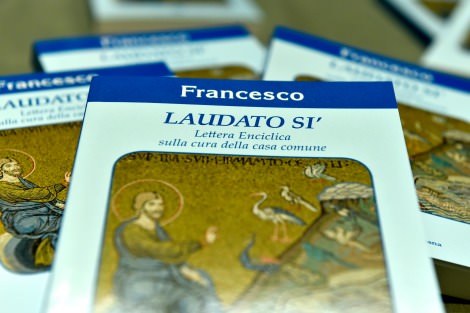
ENVIRONMENT
- Neil Ormerod
- 22 June 2016
23 Comments
It is now 12 months since Pope Francis issued his environmental encyclical Laudato Si'. He opined, 'Although the post-industrial period may well be remembered as one of the most irresponsible in history, nonetheless there is reason to hope that humanity at the dawn of the 21st century will be remembered for having generously shouldered its grave responsibilities.' Where are the Australian politicians who can give hope to the coming generation by focusing our attention on this most urgent issue?
READ MORE 
-
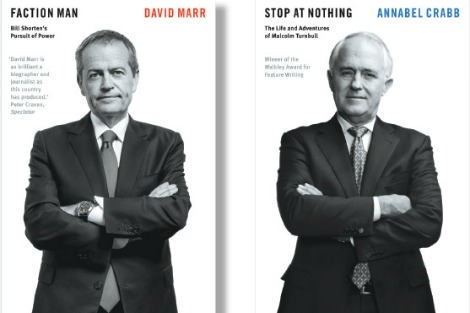
AUSTRALIA
- Andrew Hamilton
- 02 June 2016
8 Comments
David Marr describes Shorten at work in the claustrophobic world of the Labor factions and the unions where great haters abound. Annabel Crabb has a lighter touch, describing the career of Turnbull, with all its energy, intellectual and tactical brilliance, and victories with obvious enjoyment and in sunlit prose. The accounts raise two questions: Do the qualities of leaders matter much? And what insight do the leaders' stories provide into the likely achievements of the government they would lead?
READ MORE 
-

AUSTRALIA
- Frank Brennan
- 30 May 2016
5 Comments
'Being in the middle of an election campaign, I will not be making any partisan party political points. However being here in the bellwether seat of Eden-Monaro, I will conclude with a critique of both major political parties, and with one piece of political advice for citizens of goodwill seeking a national asylum policy more in harmony with the ideals set out by our bishops in their social justice statement.' Yass Catholic Parish Potluck Dinner, 28 May 2016
READ MORE
-
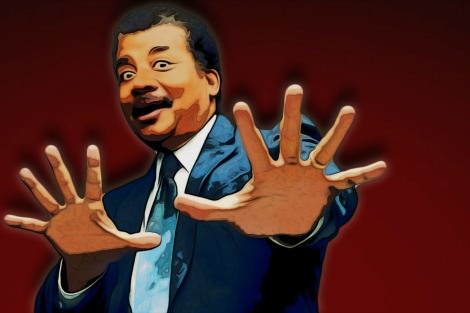
MEDIA
- Ketan Joshi
- 06 April 2016
7 Comments
When Alan Alda was 11, he threw a simple inquiry to his teacher. What's a flame? The response he received was less than satisfying. 'All I heard from the teacher was "it's oxidation". That didn't explain anything to me.' It's a neat illustration of a modern problem. Merely presenting over-simplified factoids is no longer sufficient in a world filled with phenomena like climate denial and the anti-vaccination lobby. For science to be communicated effectively, it needs to spark passion and excitement.
READ MORE 
-
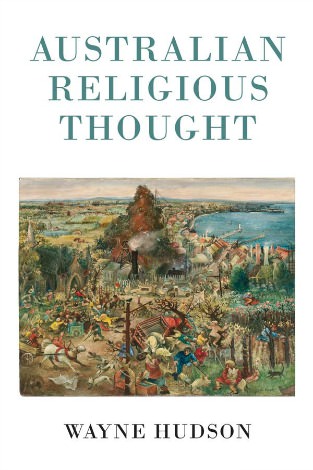
RELIGION
- Frank Brennan
- 22 March 2016
6 Comments
I offer no public judgment of Pell, and unlike many other commentators I'll await the findings of the royal commission. I have however been outspoken about his right to a fair hearing and natural justice, not because I am a priest but because I am a human rights lawyer who cares about the universal application of the rule of law. It is when a representative of institutional religion like Pell taps into the generic religious sensibility or moral consciousness that the real work of Australian religious thought is done.
READ MORE
-
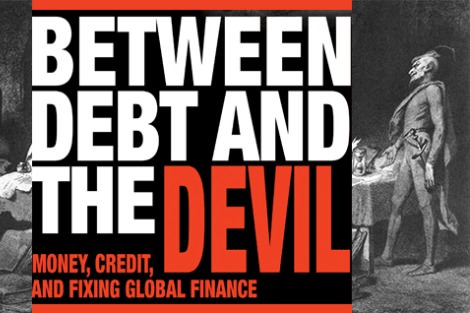
ECONOMICS
- David James
- 26 February 2016
8 Comments
It is not often that federal political parties exhibit courage. Labor's decision to change the rules on negative gearing is a rare instance. It targets what is most dangerous and unfair in our financial system. Expect howls of protests from powerful lobby groups if it ever looks like becoming policy. But these changes alone won't be enough to deal with the ills of the financial system. While they are designed to target the bias away from productive investment, they won't remove the attraction towards property.
READ MORE 
-

RELIGION
- Frank Brennan
- 27 November 2015
2 Comments
'The crisis of child sexual abuse in our societies has required that our institutional procedures be more transparent and that we learn from the ways of the world in exercising power openly and justly. This means we have to restructure some of our church arrangements so that power is exercised accountably and transparently. All of us who have positions of influence and power in institutional churches need to be attentive to the voices of those who have suffered within our institutions.' 'Discerning the place for the prophetic voice and pragmatic cooperation of the churches in the great moral questions of the age', address to the Association of Practical Theology in Oceania conference, 26 November 2015.
READ MORE
-
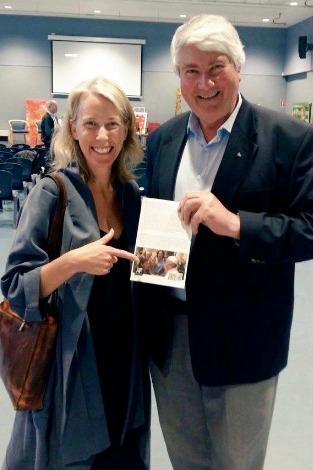
ENVIRONMENT
- Frank Brennan
- 06 November 2015
1 Comment
Francis does not pretend to have answers to the big questions which will confront world leaders when they gather in Paris. But he does think the science is IN, and the evidence is clear that much of the climate change, loss of biodiversity and water shortages are the result of human action. We are blessed to have a pope who speaks to all the world about the prudence, justice and empathy required so that more people on our planet might enjoy integral human development.
READ MORE
-
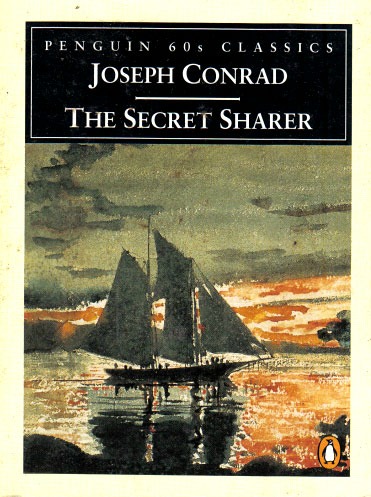
INTERNATIONAL
- Jeff Sparrow
- 30 October 2015
7 Comments
Invoking Joseph Conrad's story about seagoing doppelgangers, 'The Secret Sharer', Edward Said identified Islamophobia as anti-Semitism's respectable twin. Indeed Israeli PM Netanyahu's description of the Mufti urging Hitler onto greater evil contains an echo of the old anti-Semitic canard of Jews as shadowy manipulators. This trope is central to the infamous Protocols of the Learned Elders of Zion, was a key element in Goebbels' propaganda campaigns, and is now central to contemporary Islamophobia.
READ MORE 
-

AUSTRALIA
- Frank Brennan
- 23 October 2015
4 Comments
Francis knows there are all sorts of issues inside and outside the Church where for too long people with power have tried to keep the lid on, in the hope that the problems and complexities will go away, often by parodying those who see the problems or complexities as small 'l' liberals or cafeteria Catholics. He delights in being joyful and troubled while contemplating big problems, calling people of good will to the table of deliberation reminding them of the kernel of the Christian gospels. He has the faith and hope needed to lift the lid without fear and without knowing the answers prior to the dialogue occurring.
READ MORE
-
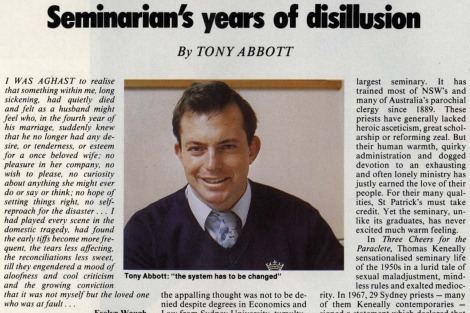
RELIGION
- Michael McVeigh
- 15 October 2015
11 Comments
Many in the Church would echo Tony Abbott's feelings on the dangers a theological environment 'at war with itself' presents to its moral authority. Similarly, there are many conservative politicians and members of the press who look at the current political commentary — marked by discussion rather than authority — and wonder what a government can accomplish in such an environment. Not surprisingly, Cardinal George Pell — described by Abbott as a 'fine human being and a great churchman' — is among those pushing back against the dialogue at the current Synod on the Family.
READ MORE 
-

- Jenny Te Paa
- 09 October 2015
16 Comments
Thank you Francis, for although you have not spoken at any length about theological education per se — any more than you have spoken about the status of women per se — in spite of these somewhat startling omissions, this indigenous lay woman theological educator feels no less inspired, comforted, reassured, blessed, beyond imagining by your gentle, wise, insistent and prophetic urgings.
READ MORE